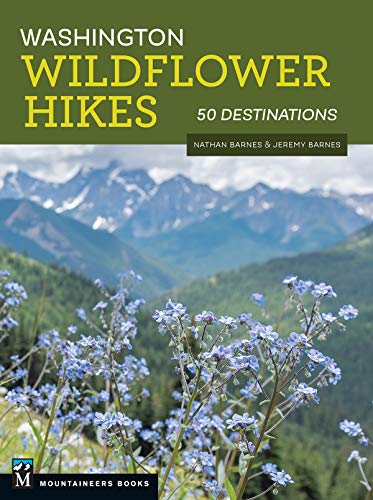Fisher Lake via Tonga Ridge Trail #1058
Follow this unofficial route down to secluded Fisher Lake, tucked into a tranquil bowl beneath Sawyer Pass.
Total Distance: 8.8 miles
Total Ascent: 1300ft (900ft in; 400ft out)
Highest Point: 5200ft
Total Ascent: 1300ft (900ft in; 400ft out)
Highest Point: 5200ft
Take Highway 2 out past Skykomish just beyond milepost 50. Take a right onto FR 68, also known as the Foss River Road. Continue for about three-and-a-half miles to a junction, taking a left onto FR 6830 and following it for almost seven miles to the signed 310 spur. Head right onto the spur and drive a little over a mile to the end of the road and the trailhead. View Google Directions >>
While the trail to Fisher Lake is technically unofficial, decades of use has dulled most of its rough edges. What was once a faint path reserved for folks looking to spend a quiet weekend fishing, is now a trail frequented by small bands of backpackers and hikers seeking a new lakeshore to explore. Large and somewhat secluded, Fisher Lake sits in a tranquil bowl just waiting to be enjoyed.
The hike begins by gently climbing through second-growth hemlock and fir. The well-maintained Tonga Ridge Trail #1058 is largely free of rocks and roots, allowing you to quickly reach the Alpine Lakes Wilderness in 0.5 miles. The route traverses the ridgeline, alternately ambling through meadows and stands of evergreen, while gliding over the ups and downs of the ridge without much difficulty. The high meadowlands offer bright blasts of colorful wildflowers in the spring, a bounty of blue huckleberries in the fall, and sweeping of the Foss River and Burn Creek valleys year-round. At 2 miles you’ll reach a relatively large meadow that older maps mark as Lake Sawyer. Although the small lake is long gone, it still serves as a useful landmark for finding the unmarked trail to the summit of Mount Sawyer (though there is sometimes a small cairn to help point the way). At 2.1 miles enter the trees just beyond the onetime lake and look for a small, steep track heading upward. If you’ve got the time, it’s a short scramble and a few steep switchbacks to reach the former lookout site and a vast expanse of mountaintops stretching out into the distance.
Continue to follow the ridgeline for another mile, reaching Sawyer Pass at the 3.0 mile mark. There are a few campsites here amongst the heather and a sign pointing toward Deception Creek. Shortly beyond is another sign forbidding campfires above 4,000 feet. Welcome to Sawyer Pass. The Tonga Ridge Trail continues onward to the left eventually connecting to the far reaches of FR 6830. Veer right here onto the Fisher Lake Trail. Note that there a few unmarked junctions along the way, most of which are short loops that pass small campsites. The loops allow for a number of ways to navigate your way to the lake and we recommend the simplest: always keep to the right. Find the first major junction at the 3.5 mile mark marked by a small meadow, the next is just ahead at 3.6 miles, and the last is at 4.1 miles. Each time, head right. All along the way the narrow, slightly brushy trail is easy to follow, climbing up past small tarns and through grassy meadowlands while offering up a few glimpses of Glacier Peak and the other snowy crags so vividly seen from the top of Mt. Sawyer.
Not far past the last junction, the trail begins to gently slope down toward Fisher Lake’s shores. The route veers south around the lake, passing a few access points before largely disappearing into the trees at 4.4 miles from the trailhead.. For decades, a rough bootpath continued from here out to the Ptarmigan Lakes, but the wilderness has largely reclaimed that approach and a trek out to the lakes will require an adventurous soul as well as route-finding and bushwhacking skills. Do a little exploring around the lake and it shouldn’t be too difficult to work your way to the lake’s outlet, Fisher Creek. Find a quiet spot on the water to enjoy the surrounding landscape and tuck in for a well-earned lunch.
While the Tonga Ridge Trail is a great all-season trail that we recommend to all hikers, accessing Fisher Lake is a bit more challenging. It’s not as approachable as the main trail, which tends to mean the crowds thin quite a bit beyond Sawyer Pass. It’s a great trail for hikers looking for something a little more on the rough and wild side.
The hike begins by gently climbing through second-growth hemlock and fir. The well-maintained Tonga Ridge Trail #1058 is largely free of rocks and roots, allowing you to quickly reach the Alpine Lakes Wilderness in 0.5 miles. The route traverses the ridgeline, alternately ambling through meadows and stands of evergreen, while gliding over the ups and downs of the ridge without much difficulty. The high meadowlands offer bright blasts of colorful wildflowers in the spring, a bounty of blue huckleberries in the fall, and sweeping of the Foss River and Burn Creek valleys year-round. At 2 miles you’ll reach a relatively large meadow that older maps mark as Lake Sawyer. Although the small lake is long gone, it still serves as a useful landmark for finding the unmarked trail to the summit of Mount Sawyer (though there is sometimes a small cairn to help point the way). At 2.1 miles enter the trees just beyond the onetime lake and look for a small, steep track heading upward. If you’ve got the time, it’s a short scramble and a few steep switchbacks to reach the former lookout site and a vast expanse of mountaintops stretching out into the distance.
Continue to follow the ridgeline for another mile, reaching Sawyer Pass at the 3.0 mile mark. There are a few campsites here amongst the heather and a sign pointing toward Deception Creek. Shortly beyond is another sign forbidding campfires above 4,000 feet. Welcome to Sawyer Pass. The Tonga Ridge Trail continues onward to the left eventually connecting to the far reaches of FR 6830. Veer right here onto the Fisher Lake Trail. Note that there a few unmarked junctions along the way, most of which are short loops that pass small campsites. The loops allow for a number of ways to navigate your way to the lake and we recommend the simplest: always keep to the right. Find the first major junction at the 3.5 mile mark marked by a small meadow, the next is just ahead at 3.6 miles, and the last is at 4.1 miles. Each time, head right. All along the way the narrow, slightly brushy trail is easy to follow, climbing up past small tarns and through grassy meadowlands while offering up a few glimpses of Glacier Peak and the other snowy crags so vividly seen from the top of Mt. Sawyer.
Not far past the last junction, the trail begins to gently slope down toward Fisher Lake’s shores. The route veers south around the lake, passing a few access points before largely disappearing into the trees at 4.4 miles from the trailhead.. For decades, a rough bootpath continued from here out to the Ptarmigan Lakes, but the wilderness has largely reclaimed that approach and a trek out to the lakes will require an adventurous soul as well as route-finding and bushwhacking skills. Do a little exploring around the lake and it shouldn’t be too difficult to work your way to the lake’s outlet, Fisher Creek. Find a quiet spot on the water to enjoy the surrounding landscape and tuck in for a well-earned lunch.
While the Tonga Ridge Trail is a great all-season trail that we recommend to all hikers, accessing Fisher Lake is a bit more challenging. It’s not as approachable as the main trail, which tends to mean the crowds thin quite a bit beyond Sawyer Pass. It’s a great trail for hikers looking for something a little more on the rough and wild side.
History
Back around the early 1900s, mining and timber companies were rolling through the valleys around Skykomish, harvesting trees and digging up ore at breakneck speed. Makeshift camps, over stoked locomotives, and the desire to move resources as quickly as possible inevitably led to forest fires that would ironically threaten the very resources and camps that made the fires in the first place. The threat of forest fires led the Forest Service to build fire lookouts throughout the Skykomish Ranger District to get ahead of outbreaks before they grew out of control. Lookout sites included a fire lookout camp on Tonga Ridge throughout the 1920s, likely in response to a fire that stripped the trees off Mount Sawyer in 1914. A ranger named George Sawyer spent his life in the forests of the Skykomish District helping keep watch for those fires and, after his death in 1930, Mount Sawyer was named in honor of his service.
Nearby hikes
Similar Difficulty
Similar Features












